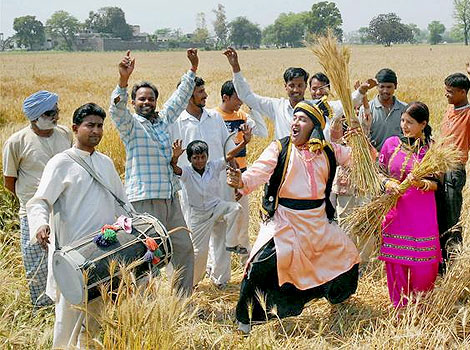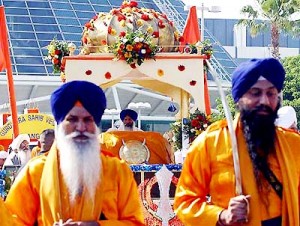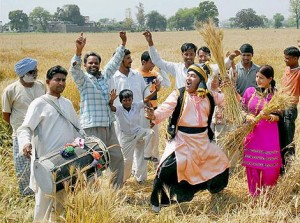April 13th is an important day in India because it marks a celebration for three of India’s prominent religions: Sikhism, Hinduism and Buddhism, as well as a day of harvest for the farmer’s in Northern India.
In 1699, Guru Gobind Singh founded Khalsa Panth, or Order of the Pure Ones, which established a unique identity for Sikhs, who base their existence on peace and equality for all. They do not discriminate based on caste, creed or gender, and can even be seen walking with brooms so that they don’t accidentally step on and kill an ant. Sikhism is a monotheistic religion and another of their practices entails the pursuit of salvation through personal meditation on the message and word of God. Khalsa Panth is the theocracy that Sikhs follow, and it stresses truth, compassion, humility, love and contentment. Baisakhi is important as it celebrates the day that the first five Sikhs were initiated into the Khalsa, so modern Sikhs view this day as an opportunity to become members of that community. Just as Baisakhi marks a transition into a new era of thinking in Sikhism, Hinduism celebrates the holiday for similar reasons.
In 1875, Baisahki saw the formation of the Arya Samaj, which is a sect of Hindus who have discarded idol worship and instead turn to Vedas, Hindu scripture, for guidance. The Vedas are the most sacred scriptures in Hinduism, and according to Hindu tradition, when God creates the worlds, the Vedas are revealed to maintain their welfare, but they are ultimately taken back when God ends creation.
Just as Hindus found a new source of knowledge, Buddhists remember Baisahki for its wisdom, which came in a slightly different form. Saddharta Gautama achieved enlightenment, or Nirvana, on Baisahki. Nirvana is the ultimate goal of the Buddhist religion, it is a state free from suffering and individual existence. It breaks the endless cycle of rebirth, known as reincarnation and also frees the enlightened individual from worldly emotions and concerns, such as greed and hate.
Baisahki also has significance in an area other than religion. For farmers in the northern states of Punjab and Haryana, Baisakhi marks a celebration similar to Thanksgiving. The harvest of winter crops, or Rabi, happens on this day and farmers acknowledge it by dressing in new clothes, going to temple to thank God for the good harvest and to pray for a blessed harvest in the next agricultural season. There are also energetic dances and an abundance of festivity, food, and fairs.



